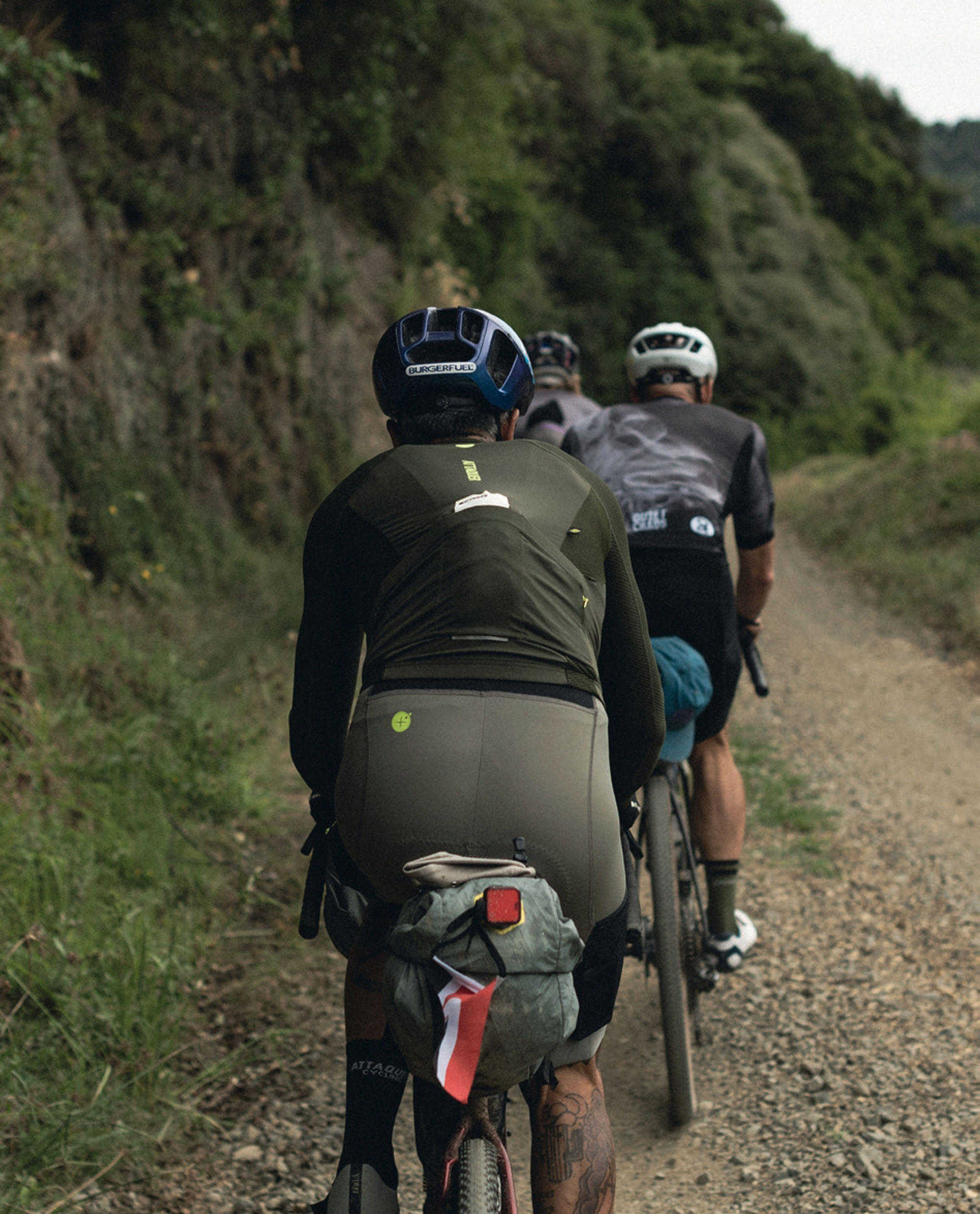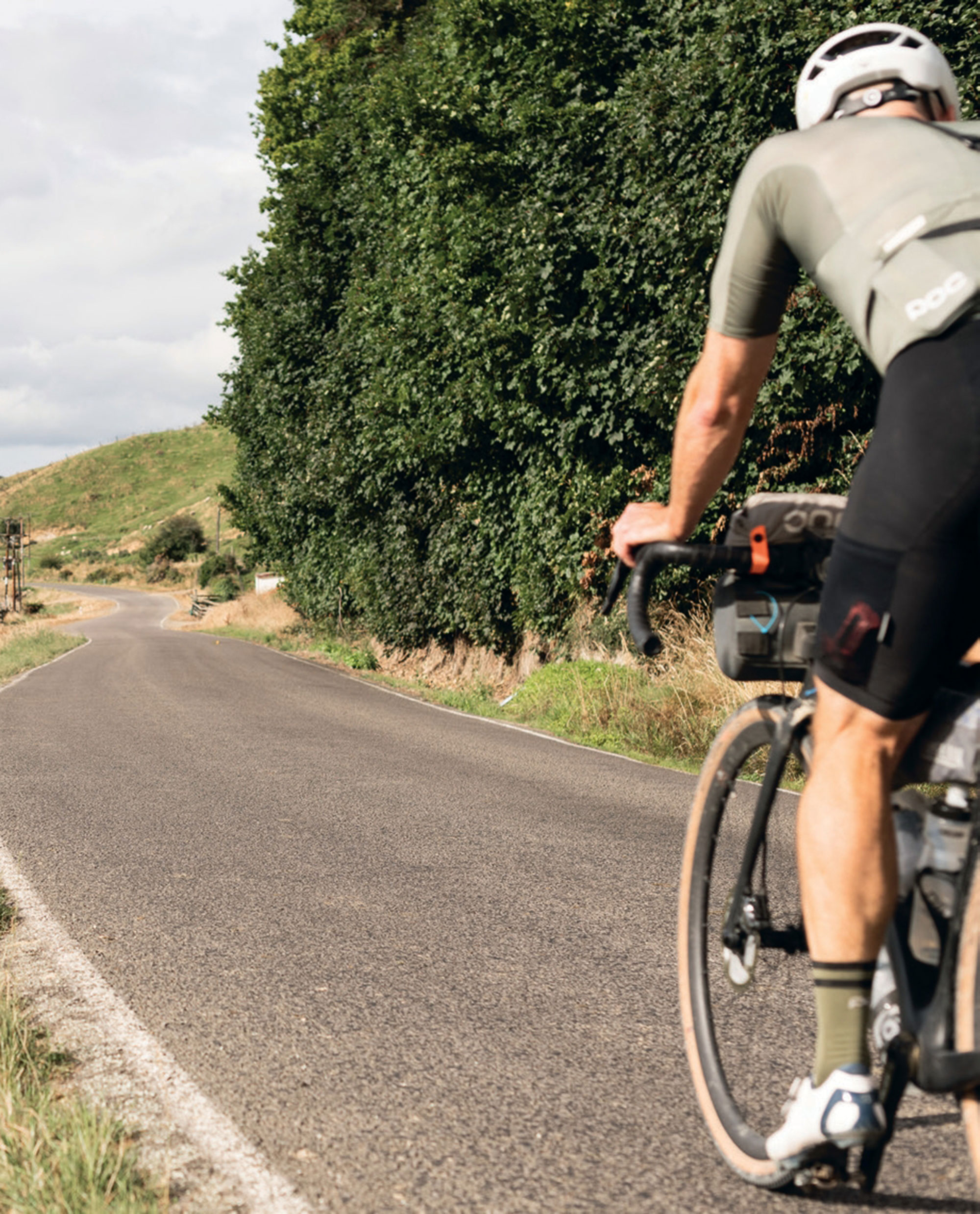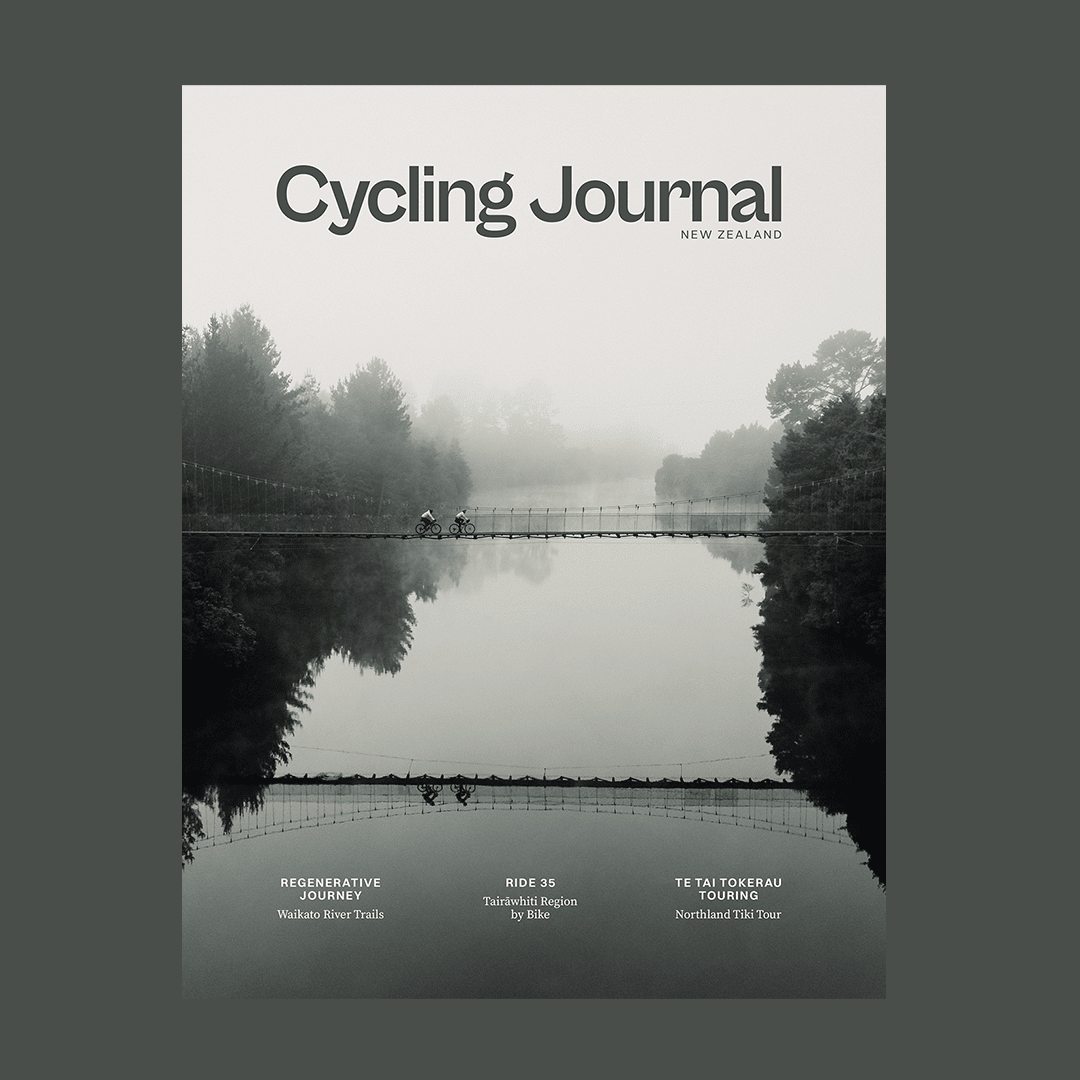Words Lester Perry
Images Brennan Thomas
In recent weeks, I’ve been reminded of just how fortunate we are, as cyclists, to live in New Zealand. On the flipside, I’ve also been reminded of how easily the place we call home could lose its shine—if it hasn’t already.
Still, most of us aren’t living in an apartment building in the middle of a massive, skyscraper- filled metropolis. Worst case, if you live in central Auckland, you can be on tree-lined roads in rolling hills within an hour’s ride. In many cases, our riding adventure can start as soon as we roll out of the driveway. Imagine having to commute somehow to even start a ride of any sort.
Some pay thousands of dollars to get their fix of bike- based adventure. Flying from their smog-clogged concrete jungle to the literal jungle; New Zealand. Breathing New Zealand’s cleaner air offers them a release from their (likely) overworked existence in a built-up, densely populated environment.
Given that people pay a lot of money to come here, let’s try to take care of the place! I’m astounded that, whilst out on a ride in the middle of nowhere, I find Monster cans, chip packets, takeaway containers, and all manner of human-made trash on the sides of our roads or trails. Surely, if people wanted to see this sort of thing they could find it in their own concrete paradise; there’d be no need to fly across the globe to our fair shores to see it.
Will people continue to pay money to come here if, aside from the roads they’re on, everywhere they ride is tarnished by humans? It’s a seemingly small question, but a question nonetheless, and think about it; if NZ loses its appeal for outdoor adventures, what do we really have left? Yes, our coffee is some of the best, but that’s not really enough, is it? Why would someone want to visit, if our grandiose outdoor areas were tarnished by humans and their dirty little habits?
Thinking about this further, I wonder if it’s a lack of fundamental understanding of our actions and their long-term consequences. Youngsters (and not-so-youngsters) who haven’t deeply experienced, or formed a connection with, the outdoors may see no reason not to toss their empties from a vehicle. Maybe it should be a case of outdoor education rather than punishment?
Maybe it begins early in life. Surely there’s an importance in getting youth immersed in the great outdoors, with the spin-off of them recognising the value of what we have and, ultimately, helping to protect it for the future, not only for visitors but for those of us who live here permanently.
Like many, I see cycling in all its forms as one of the saviours of the future. Offering an easy gateway to the outdoors, covering much more ground than a simple walk, and providing riders a view into many more outdoor worlds than just a stroll through a park would. It could be as simple as a bike ride to school that helps form a connection and, ultimately, a feeling of responsibility for the outdoors.
So, what should we do? Perhaps it’s the small things; not anything as serious as pre-organised after-school or coaching programs. Maybe it’s just getting kids on bikes on safe, simple cycle paths that allow a neighbourhood of children the freedom and safety to ride to school—or to each other’s houses—that provides a connection to the outdoors and ultimately helps them gain an innate sense of the importance of the environment. Surely this would then make access and connection with their friends easier and safer, with long-term positive effects. The spin-off would benefit not only visitors, but also those of us who exist here more permanently.
To all the NIMBYs out there – lobbying against cycle trails, road side cycle paths and the like: broaden your view, see past the ‘problems’ and perhaps look at them as a tool to help young and old connect with the outdoors. These same people could grow to make a real difference and ultimately leave NZ a better place, long after us middle-agers are gone.





